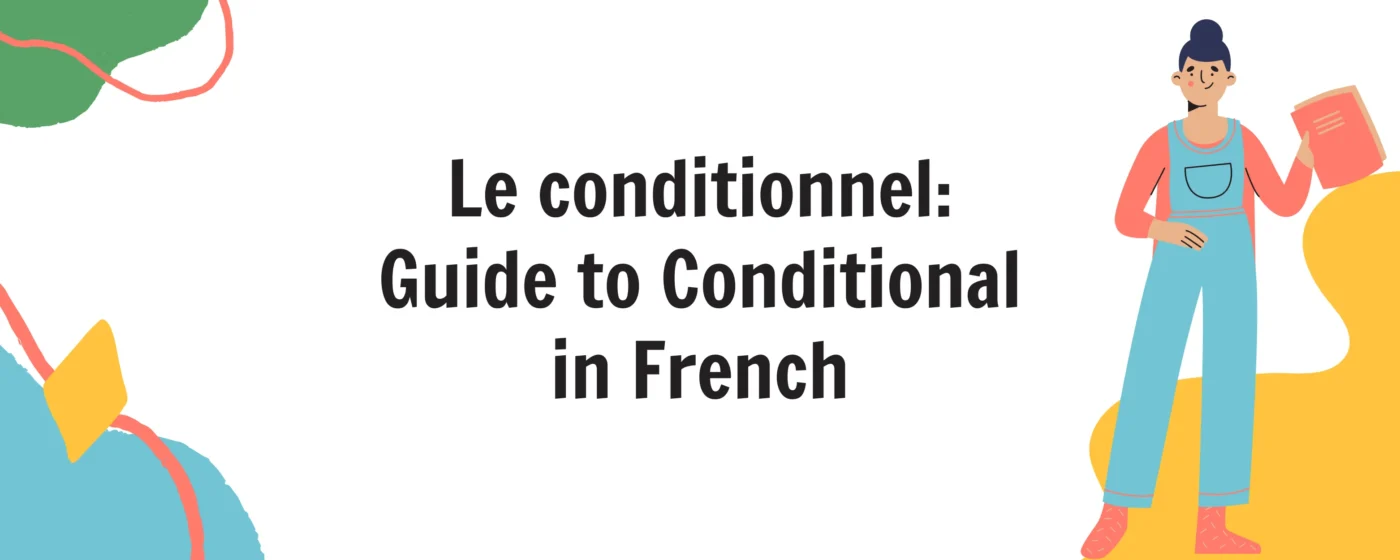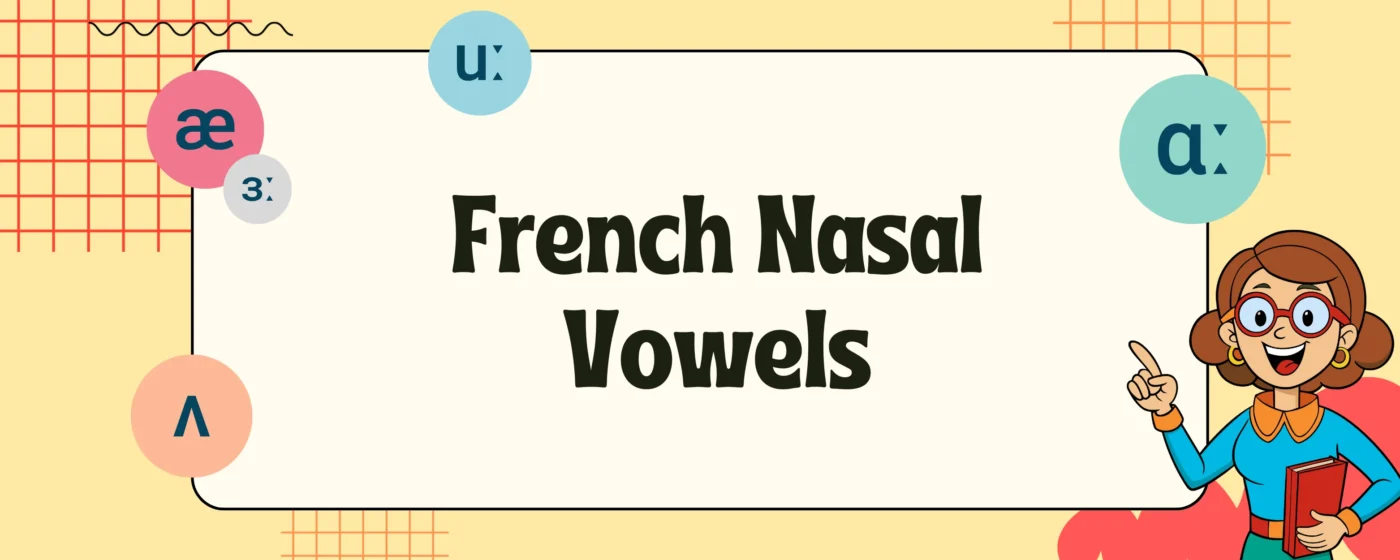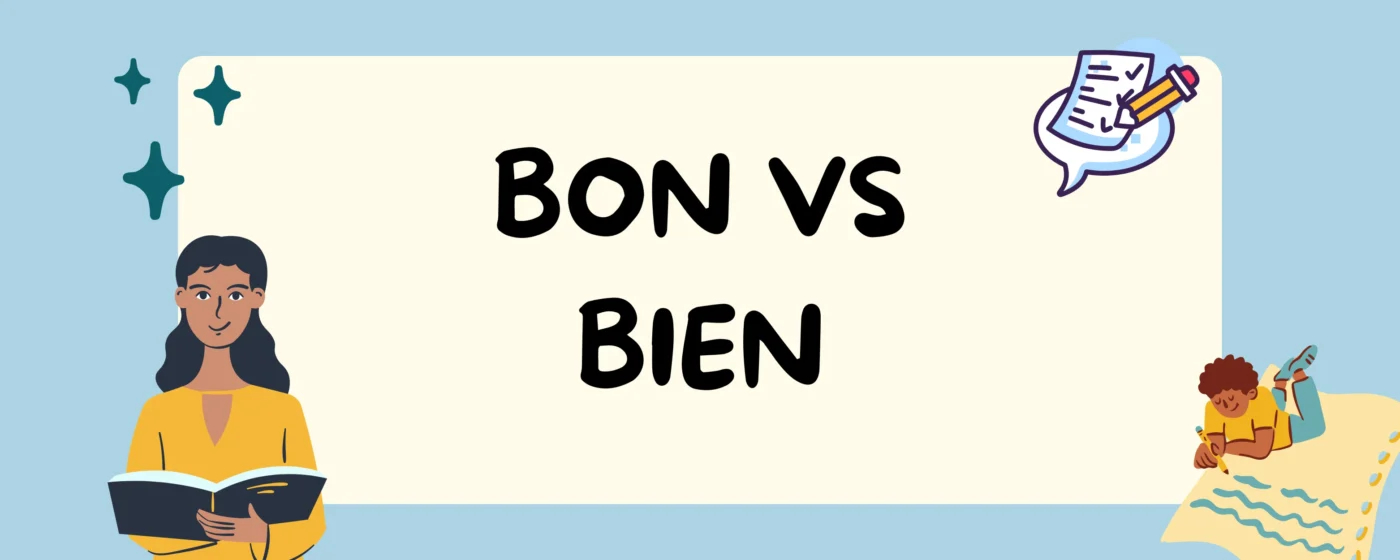Le conditionnel: Guide to Conditional in French

The French conditional tense, or “le conditionnel,” expresses hypothetical situations and polite requests. Mastering it is key for effective communication, as it adds nuance and politeness to your speech. This article will cover its formation, usage, and common phrases, helping you use the conditional confidently in conversations.
Key Takeaways
- Learning the French conditional helps you express wishes, politeness and imagined situations naturally in both spoken and written French.
- Form it easily by using the future stem with imparfait endings to build smooth and consistent verb patterns.
- Use “si + imparfait” with the conditional to describe hypothetical or unreal situations in daily French conversations.
- The conditional passé helps express regrets or situations that could have happened but didn’t in the past.
- Understanding and practising the conditional adds fluency and confidence to your communication in real-life French interactions.
What is Le Conditionnel?
Le conditionnel in French is both a tense and a mood. As a tense, it describes actions that would happen under certain conditions. As a mood, it expresses politeness, wishes, or hypothetical situations.
Expressing Future from a Past Point of View
When using le conditionnel to talk about the future from a past perspective, it describes what someone said or thought would happen. For example:
“Il a dit qu’il viendrait demain.” (He said he would come tomorrow.)
Hypothetical or Imagined Reality
Le conditionnel also expresses hypothetical or imagined scenarios. These are situations that are not real but possible under certain conditions. For example:
“Si j’avais de l’argent, je voyagerais.” (If I had money, I would travel.)
When to Use Le Conditionnel in French
Le conditionnel is used in various contexts to express different meanings. Here are some common use cases:
To Express a Wish, Possibility, or Hypothesis
Le conditionnel can express desires, possibilities, or hypothetical situations.
- Wish: “Je voudrais aller en France.” (I would like to go to France.)
- Possibility: “Elle pourrait arriver à l’heure.” (She could arrive on time.)
- Hypothesis: “S’il pleuvait, nous resterions à la maison.” (If it rained, we would stay at home.)
To Talk About the Future from a Past Point of View
This use of le conditionnel involves discussing future events from a past perspective.
- “Il a dit qu’il partirait demain.” (He said he would leave tomorrow.)
- “Elle pensait qu’ils arriveraient tôt.” (She thought they would arrive early.)
In If-Clauses
Le conditionnel often appears in conditional sentences with “if” clauses (si-clauses).
- “Si j’avais un million d’euros, j’achèterais une maison.” (If I had a million euros, I would buy a house.)
- “Si nous avions le temps, nous visiterions le musée.” (If we had time, we would visit the museum.)
To Make Polite Requests
Using le conditionnel makes requests sound more polite and courteous.
- “Pourriez-vous m’aider, s’il vous plaît ?” (Could you help me, please?)
- “J’aimerais réserver une table pour deux.” (I would like to book a table for two.)
How to Conjugate Le Conditionnel in French
Conditionnel Présent
To form the conditionnel présent, add the imparfait endings to the stem of the future simple form of the verb.
Regular -er, -ir, and -re Verbs
Example: parler (to speak)
- Je parlerais (I would speak)
- Tu parlerais (You would speak)
- Il/Elle/On parlerait (He/She/One would speak)
- Nous parlerions (We would speak)
- Vous parleriez (You would speak)
- Ils/Elles parleraient (They would speak)
Example: finir (to finish)
- Je finirais (I would finish)
- Tu finirais (You would finish)
- Il/Elle/On finirait (He/She/One would finish)
- Nous finirions (We would finish)
- Vous finiriez (You would finish)
- Ils/Elles finiraient (They would finish)
Example: attendre (to wait)
- J’attendrais (I would wait)
- Tu attendrais (You would wait)
- Il/Elle/On attendrait (He/She/One would wait)
- Nous attendrions (We would wait)
- Vous attendriez (You would wait)
- Ils/Elles attendraient (They would wait)
Irregular Verbs
Avoir (to have):
| Pronoun | Conjugation |
|---|---|
| Je | aurais |
| Tu | aurais |
| Il/Elle | aurait |
| Nous | aurions |
| Vous | auriez |
| Ils/Elles | auraient |
Être (to be):
| Pronoun | Conjugation |
|---|---|
| Je | serais |
| Tu | serais |
| Il/Elle | serait |
| Nous | serions |
| Vous | seriez |
| Ils/Elles | seraient |
Common Exceptions
Some verbs have irregular stems in the conditionnel présent. Here are a few examples:
Aller (to go): ir-
J’irais (I would go)
Faire (to do/make): fer-
Je ferais (I would do/make)
Voir (to see): verr-
Je verrais (I would see)
Savoir (to know): saur-
Je saurais (I would know)
Venir (to come): viendr-
Je viendrais (I would come)
Tips:
- For regular verbs, remember to use the future simple stem and add the imparfait endings.
- Pay special attention to irregular stems for common verbs.
Grammar Rules Got You Down?
La Forêt’s tutors simplify grammar so you can speak confidently and accurately.
Conditionnel Passé
What is Conditionnel Passé?
The conditionnel passé is used to express actions that would have happened under certain conditions. It is structured as “would have” + past participle.
How to Conjugate Conditionnel Passé
To form the conditionnel passé, use the conditionnel présent of the auxiliary verb (avoir or être) followed by the past participle of the main verb.
Examples for -er, -ir, and -re Verbs
-er Verbs:
Example: parler (to speak)
- J’aurais parlé (I would have spoken)
- Tu aurais parlé (You would have spoken)
- Il/Elle/On aurait parlé (He/She/One would have spoken)
- Nous aurions parlé (We would have spoken)
- Vous auriez parlé (You would have spoken)
- Ils/Elles auraient parlé (They would have spoken)
-ir Verbs:
Example: finir (to finish)
- J’aurais fini (I would have finished)
- Tu aurais fini (You would have finished)
- Il/Elle/On aurait fini (He/She/One would have finished)
- Nous aurions fini (We would have finished)
- Vous auriez fini (You would have finished)
- Ils/Elles auraient fini (They would have finished)
-re Verbs:
Example: attendre (to wait)
- J’aurais attendu (I would have waited)
- Tu aurais attendu (You would have waited)
- Il/Elle/On aurait attendu (He/She/One would have waited)
- Nous aurions attendu (We would have waited)
- Vous auriez attendu (You would have waited)
- Ils/Elles auraient attendu (They would have waited)
Negative Sentences
To form negative sentences in the conditionnel passé, place “ne” before the auxiliary verb and the negative word after it.
“Je n’aurais pas parlé.” (I would not have spoken.)
“Nous ne serions pas partis.” (We would not have left.)
Reflexive Verbs
For reflexive verbs, place the reflexive pronoun before the auxiliary verb.
“Je me serais levé(e).” (I would have gotten up.)
“Ils se seraient vus.” (They would have seen each other.)
Frequently Asked Questions
Q: What is the Difference Between Imparfait and Conditionnel?
Ans: The imparfait describes ongoing or repeated past actions, while the conditionnel expresses what would happen under certain conditions. For example, “Il chantait” means “He was singing,” whereas “Il chanterait” means “He would sing.” To master these nuances, consider joining La Forêt French class.
Q: Is Conditional Polite in French?
Ans: Yes, using the conditional form is a polite way to make requests or offers. For instance, “Pourriez-vous m’aider?” (Could you help me?) is more courteous than “Pouvez-vous m’aider?” (Can you help me?).
Q: What is the Difference Between Future Simple and Conditionnel?
Ans: The future simple tense describes what will happen, while the conditionnel describes what would happen under certain conditions. For example, “Il partira” means “He will leave,” whereas “Il partirait” means “He would leave.” Enhance your understanding with La Forêt French class.
Q: How to Use Si Conditionnel?
Ans: Use the conditionnel with “si” (if) to express hypothetical situations. For example, “Si j’avais de l’argent, je voyagerais” means “If I had money, I would travel.” Practicing these structures can greatly improve your French, and La Forêt French class can help you achieve that.




